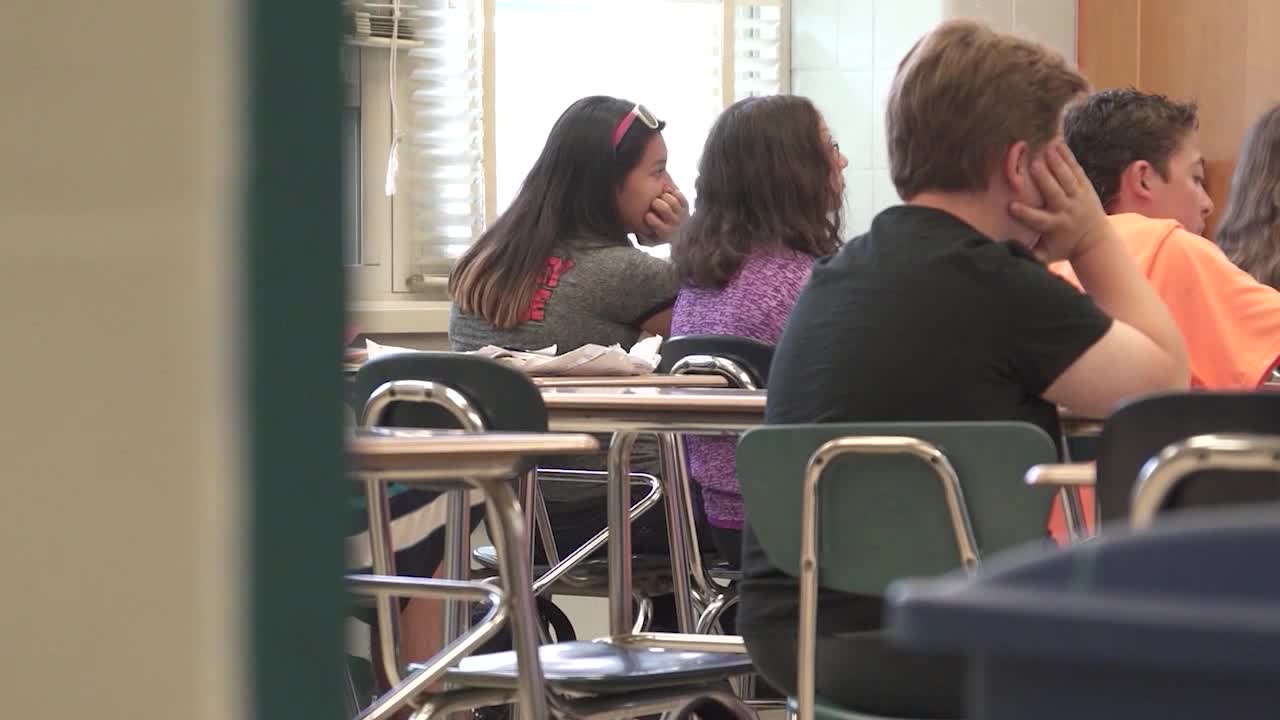Hennepin County works to improve access to mental health support amid rising demand among youth
The first year of the COVID pandemic led to a 25% increase in global anxiety and depression cases, according to the World Health Organization. Last year, the American Academy of Pediatrics declared a national emergency in child and adolescent mental health.
“I think there has been a lot on them socially and then socio-economically with the pandemic we’ve been living through,” said Lauren Bialon, who lives in Elk River and has three children. “We went through a pandemic and our kids were locked away for nine months and school just abruptly stopped. They couldn’t see anybody.”
At the same time, children have unprecedented access to social media. Bialon feels that pressure also contributes to youth’s ongoing mental health crisis.
She has become an advocate for improving access to mental health support and treatment. Her 14-year-old daughter faced a mental health crisis last year.
“Growing up, I struggled with my own mental health and I was diagnosed with depression, ADD,” she said. “Then your child is in crisis and there’s nothing that can prepare you. None of your own life experiences, there’s nothing that can prepare you for that when your child is in crisis.”

She explained they discovered her daughter was harming herself and immediately sought help. However, she was still attending middle school, where other students were also struggling.
“She fell in with a group of girls at school who were unfortunately in the same state of mind that she was at that time,” said Bialon. “They together planned to end their lives.”
When they learned of those plans, they were able to intervene and get their daughter additional help, including in-patient treatment. The 8th grader finished her final year of middle school online and is now starting 9th grade remotely.
Bialon feels, however, that her daughter’s school district didn’t initially take the girls’ intent seriously.
“If there would’ve been a mental health professional to take this over from a guidance counselor, I do feel like things maybe would have been different, red flags would’ve been caught,” she said. “Looking back at our specific case, everything was stemming from school. This group of girls was there together at school, and they were communicating their plans on school property, on school equipment.”
On Wednesday evening, she joined Hennepin County Commissioner Kevin Anderson for a panel on how to improve mental health support for students. There were also leaders from different school districts and law enforcement.
“I have four kids, two of them are in middle school and so knowing the stress that that kids are going through, I see it in my own family,” said Commissioner Anderson. “I know families across Hennepin are going through the same thing.”
He added, “the goal to me is to make sure we’re getting help to people when they need it and where they need it.”
In Sept. 2021, Hennepin County set aside $20 million to invest in mental health services. About $2.2 million was directed towards expanding school-based mental health services specifically.
“One of the goals that we had was making sure that we had some mental providers in school-based mental health in every public school in Hennepin County,” said Commissioner Anderson.
According to Hennepin County, the additional funding allowed the county to expand its mental health school-based program to 24 additional schools. It’s now in all 231 public schools and 100% of districts in the county. The expansion supports an additional 1,000 students each year.
The funding enables eight mental health providers to partner with schools to embed a full-time mental health professional that can provide direct clinical treatment services to students and families in each school, according to the county.
“At this point we have the capacity to have a resource in every public school in Hennepin County. Staffing is certainly an issue,” Commissioner Anderson acknowledged. “I think there is a lot of work that has yet to be done and the need is so great out there that I don’t think we can rest until we really have made and are seeing a difference.”
Osseo Area Schools Superintendent Cory McIntyre has seen first-hand how the pandemic magnified the stress on students.
“I think it’s kind of in every district right now,” he said. “We’ve seen increased levels of anxiety, behavioral regulation, and depression. Avoidance can show up in attendance.”
According to Hennepin County, youth with mental illness are twice as likely to drop out of school.
McIntyre explained they’re leaning on school psychologists, nurses and counselors to address the need.
“The demand is outpacing the supply so to speak, when it comes to having enough people to provide these services,” he said. “About a third of our schools are understaffed. We have identified and funded the positions and we don’t have the people to fill them.”
According to McIntyre, ten sites within the district currently don’t have a designated therapist.
“It’s really hard to find therapeutic staff right now. There’s just a shortage,” he said. “It’s a staffing crisis.”
McIntyre joined Commissioner Anderson and Bialon on Wednesday’s panel to discuss how to improve mental health support for students.
“How can we solve this together instead of doing this in isolation?” said McIntyre.
As she advocates for other families, Bialon also shares a message of hope and the story of her daughter’s resilience and strength.
“She’s a good kid, she’s a really good kid,” said Bialon. “Everybody struggles sometimes and one of the things we say with parenting teens that struggle is there’s no such thing as a broken child, just broken systems and we have to figure out which systems are broken and fix it.”
Call or text 988 to connect with a crisis counselor if you are struggling and need support.